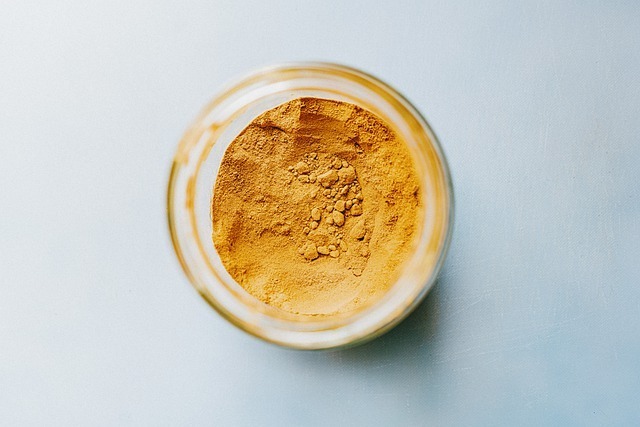Turmeric spice is being investigated more as a supplemental treatment for both osteoarthritis and rheumatoid arthritis pain due to the anti-inflammatory properties of its major polyphenol curcumin.
Did you know that there are over 100 different types of arthritis?1
Osteoarthritis (OA), or degenerative joint disease is the most common form of arthritis, followed by rheumatoid arthritis (RA).1
While osteoarthritis is considered a biomechanical and inflammatory disease, rheumatoid arthritis is considered a systemic condition caused by the dysregulation of the immune system.1
The most common cause of chronic knee pain
Osteoarthritis is the most common cause of chronic knee pain.2 Chronic knee pain can adversely affect the daily activities of anyone, potentially leading to avoidance of those daily activities. 2
Treatment for osteoarthritis and rheumatoid arthritis includes the use of non-steroidal anti-inflammatory drugs (NSAIDs), exercise, weight loss, and corticosteroid injections.3
The biggest problem with the use of NSAIDs is that they can cause a wide range of well-known adverse events in cardiovascular, renal, and gastrointestinal systems when used for prolonged periods of time.2
In some cases, patients may want to avoid the use of these medications. A significant amount of research is focused on looking at natural or plant-derived compounds that could help with treating the pain associated with osteoarthritis and rheumatoid arthritis.
Turmeric for pain associated with arthritis
Turmeric is a widely used spice (particularly within Indo-Asian cuisines) that belongs to the ginger family.3 It also has a long history of use within traditional Chinese and Ayurvedic medicines.3
The main compounds in turmeric are curcuminoids (flavonoids) that give turmeric its yellow color.2
These compounds are also partially responsible for the anti-inflammatory properties of turmeric (one of the main reasons for it being used within traditional eastern medicines).2
Clinical studies with curcumin
One of the first clinical studies with curcumin was done in 1980—with 18 rheumatoid arthritis patients.3
Though it showed the benefits of curcumin, it also had a major drawback—the lack of a control group.
There have been several small clinical trials over the years that have demonstrated that taking curcumin extract helps to improve knee pain, performance-based test scores, and reduce the need for other non-steroidal anti-inflammatory drugs. 4,5,6,7
Fewer adverse reactions when compared to other non-steroidal anti-inflammatory drugs
In addition, curcumin has been shown to have (at times) fewer adverse reactions in patients when compared to other non-steroidal anti-inflammatory drugs 7
These studies 4,5,6,7 have shown short-term benefits of curcumin is beneficial for the treatment of arthritic pain, and agree that larger phase III studies are still needed to both improve the treatment plan and to determine the optimal range of curcumin dosage.
Drawbacks
One of the drawbacks of the use of turmeric for pain is the poor bioavailability of curcumin to be absorbed in the intestinal tract.2 It usually ends up being processed and removed quickly from the bloodstream through the liver and kidneys.2
To help overcome this limitation, scientists are looking at different ways of ‘packaging’ the curcumin to make it more bioavailable – easily absorbed by the body.
So, does turmeric (or more specifically curcumin) help inflammation and pain associated with arthritis?
While there is research to support the use of curcumin for pain and inflammation, more research and clinical trials are needed to further investigate these effects and determine the best formulations to use.
According to the FDA, curcumin is a “generally recognized as safe” (GRAS) product.3
Since the FDA labeled it as a GRAS product, it is widely available as a supplement (usually as turmeric-curcumin). Always speak with your doctor before taking supplements to make sure they are right for you.
Cooking with turmeric is another way of getting the curcumin supplement, as turmeric can be added to scrambled eggs, rice, soups, smoothies, or even tea.
References:
1) Lindler BN, Long KE, Taylor NA, and Lei W. (2020) ‘Use of Herbal Medications for Treatment of Osteoarthritis and Rheumatoid Arthritis’ Medicines 7:67; doi:10.3390/medicines/7110067
2) Thanawala S, Shah R, Somepalli V, Alluri KRV, Desomayanandam P, and Bhuvanendran A. (2021) ‘A Multicenter, Randomized, Double-Blind, Placebo-Controlled Trial Assessing Efficacy and Safety of a Novel Low-Dose Turmeric Extract Formulation in Healthy Adults with Chronic Knee Pain’ Clinical Pharmacology: Advances and Applications13:91-100
3) Gupta SC, Patchva S, and Aggarwal BB. (2013) ‘Therapeutic Roles of Curcumin: Lessons Learned from Clinical Trials’ The AAPS Journal 15(1): 195-218 DOI: 10.1208/s12248-012-9432-8
4) Loprsti AL, Smith SJ, Jackson-Michel S, and Fairchild T. (2022) ‘An Investigation into the Effects of a Curcumin Extract (Curcugen®) on Osteoarthritis Pain of the Knee: A Randomised, Double-Blind, Placebo-Controlled Study’ Nutrients 14:41 DOI: doi.org/10.3390/nu14010041
5) Henrotin Y, Malaise M, Wittoek R, de Vlam K, Brasseur J-P, Luyten FP, Jiangang Q, Van den Berghe M, Uhoda R, Bentin J, De Vroey T, Erpicum L, Donnaeau AF, and Dierckxsens Y. (2019) ‘Bio-optimized Curcuma longaextract is efficient on knee osteoarthritis pain: a double-blind multicenter randomized placebo-controlled three-arm study’ Arthritis Research and Therapy 21:179 dio.org/10.1186/s13075-019-1960-5
6) Kuptniratsaikul V, Dajpratham P, Taechaarpornkul W, Buntragulpoontawee B, Lukkanapichonchut P, Chootip C, Saengsuwan J, Tantayakom K, and Laongpech S. (2014) ‘Efficacy and safety of Curcuma domestica extracts compared with ibuprofen in patients with knee osteoarthritis: a multicenter study’ Clinical Interventions in Aging 9:451-458
7) Shep D, Khanwelkar C, Gade P, and Karad S. (2019) ‘Safety and efficacy of curcumin versus diclofenac in knee osteoarthritis: a randomized open-label parallel-arm study’ Trials 20:214 doi.org/10.1186/s13063-019-3327-2
Image by Antonio Cansino from Pixabay



